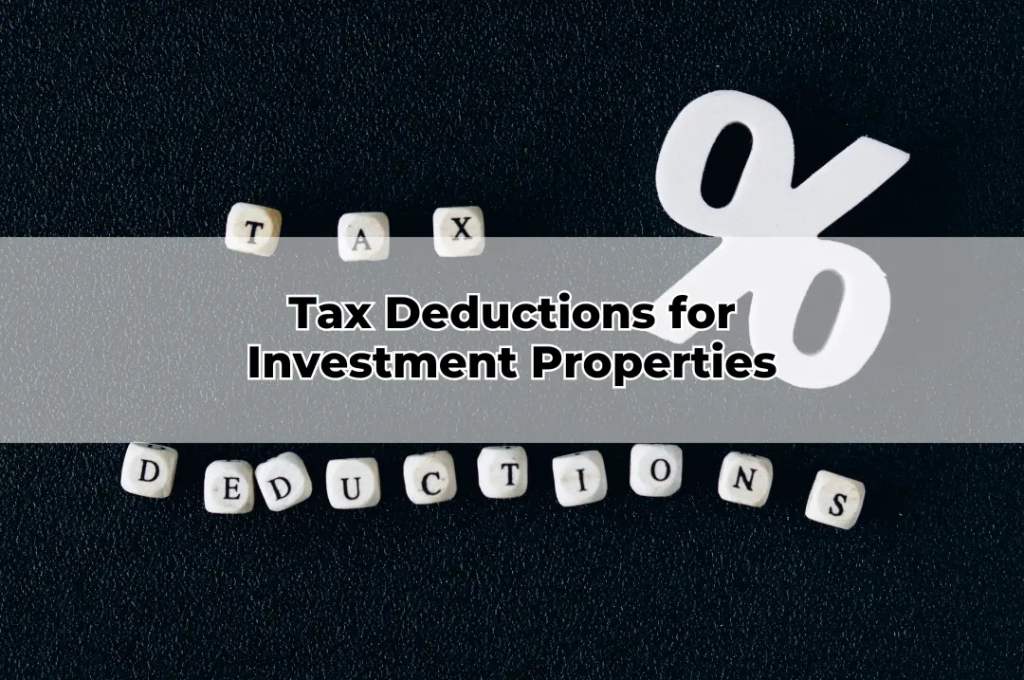Tax Deductions for Investment Properties
Table of Contents
ToggleInvesting in property can be a lucrative strategy, but to maximise your returns, understanding the tax benefits is essential. The Australian Taxation Office (ATO) allows property investors to claim various deductions, reducing taxable income and improving cash flow. However, navigating these deductions requires careful planning and compliance. This article delves into the tax deductions available to property investors, helping you make informed financial decisions.
The Importance of Claiming Deductions Correctly
Incorrectly claiming deductions can lead to audits, penalties, and unnecessary stress. A well-structured approach ensures compliance while optimising tax benefits. It is crucial to differentiate between capital and immediate deductions, keeping thorough records to substantiate claims. Engaging a financial adviser can provide further clarity, ensuring your investment strategy aligns with tax laws and financial goals.
Loan Interest and Borrowing Costs
Interest on loans for investment properties is a deductible expense. This applies to funds borrowed for purchasing, renovating, or maintaining the property. Borrowing costs, such as loan establishment fees and mortgage broker charges, can also be claimed over five years. However, personal expenses related to the loan, such as principal repayments, are not deductible.
Depreciation on Property and Assets
Depreciation allows investors to claim deductions on the wear and tear of a property and its assets. Two types of depreciation apply: capital works deductions (for structural improvements) and plant and equipment depreciation (for removable assets like appliances and carpets). A depreciation schedule from a qualified quantity surveyor ensures claims are accurate and compliant.
Repairs, Maintenance, and Improvements
Expenses for repairs and maintenance are immediately deductible, provided they restore the property to its original state. In contrast, improvements that enhance the property’s value must be depreciated over time. Understanding this distinction is crucial for tax planning and avoiding misclassification of expenses.
Property Management and Professional Fees
Fees paid to property managers, accountants, and financial advisers are deductible. Property management fees cover tenant-related services, while accounting and advisory fees relate to financial planning and tax compliance. These expenses help investors maintain their property portfolio efficiently.
Advertising and Tenant-Related Costs
Costs incurred in advertising a rental property, such as online listings and signage, are deductible. Additionally, expenses related to tenant management, including lease preparation and eviction costs, can be claimed. Ensuring proper documentation of these expenses maximises tax benefits.
Insurance Premiums for Investment Properties
Landlord insurance, building insurance, and public liability insurance premiums are tax-deductible. These policies protect investors against potential financial losses due to tenant defaults, property damage, or legal claims. Maintaining adequate coverage is both a financial safeguard and a tax-effective strategy.
Council Rates, Land Tax, and Strata Fees
Council rates and land tax are deductible expenses for investment properties. Strata fees for properties within a strata scheme can also be claimed, provided they cover standard maintenance and management costs. Investors should check state-specific land tax thresholds to understand their obligations.
Utilities and Other Property-Related Expenses
While utilities paid by tenants are not deductible, any costs borne by the landlord, such as water charges or electricity during vacancy periods, can be claimed. Other deductible expenses include pest control, security, and garden maintenance, provided they are directly related to the rental activity.
Travel Expenses for Managing Investment Properties
Previously, investors could claim travel expenses for inspecting or maintaining rental properties. However, legislative changes now disallow such deductions for residential properties. Understanding these restrictions helps prevent erroneous claims and ensures compliance with tax laws.
Capital Gains Tax and Investment Property Sales
When selling an investment property, capital gains tax (CGT) applies. Investors can reduce CGT liabilities through strategies like the 50% CGT discount (for properties held over 12 months) and offsetting gains against capital losses. Proper tax planning is essential to minimise the impact of CGT on investment returns.
Record-Keeping and Compliance
Maintaining meticulous records is vital for substantiating deductions. Investors should keep receipts, bank statements, and tax invoices for at least five years. Using property management software or consulting a financial adviser ensures accuracy and simplifies tax reporting.
Conclusion
Understanding tax deductions for investment properties empowers investors to enhance financial outcomes. Leveraging all available deductions, maintaining compliance, and seeking professional advice ensure long-term success. For personalised financial guidance, consult a Toowoomba Financial Adviser at Wealth Factory today.



